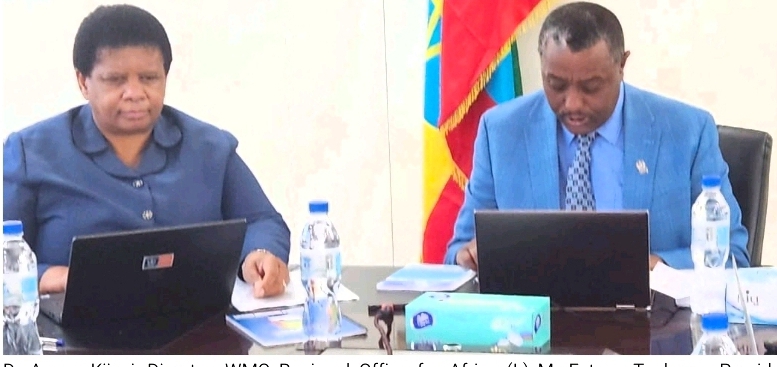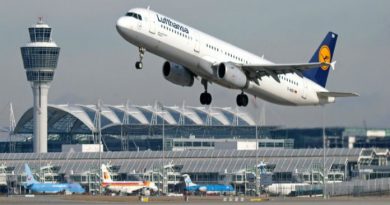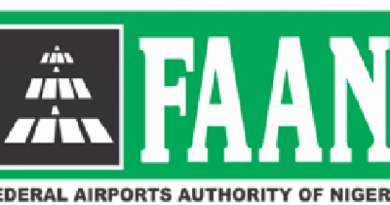WMO RA I Management Group meets to Deliberate on issues related to development of Meteorology and Hydrology in Africa.
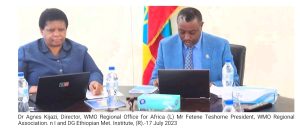
Oru Leonard
The WMO Regional Association I (RA1) Management Group met on 19-21 July 2023 to deliberate on issues related to Meteorology and Hydrology in Africa including the Early Warning for All (EW4ALL).
The group examined the outcomes of the 18th Session of the Regional Association (RA I-18, Phase III) and the 2023 Regional Conference (RECO 2023). It also reviewed the 19th Congress (Cg-19) and 77th Executive Council (EC-77) of WMO for implementation in the region.
The Management Group was further briefed by the chairs/co-chairs of the Committees in the Regional Association on their work plans and activities and expected deliverables for 2023 – 2027 sessions in line with the respective resolutions.
In his opening Statement to the Group, the President of the RA I and Director General (DG) of the Ethiopian Meteorological Institute (EMI), Mr Fetene Teshome, stated that the Group have set for itself Strategic Priorities as contained in the Decision of RA I Strategic Plan for 2024–2027. According to him, the priority will help address the apparent challenges by integrating them into the national strategic Plan.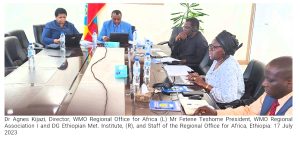
The WMO Director of Member Services and Development Department, Mr Filipe Lucio, called on the Management Group to ensure that the region’s priorities are addressed and urged them to advise on the appropriate arrangements to enhance the work of NMHSs.
The RA I Regional Implementation Plan, he said, will be submitted to the SG, which should include significant regional priority areas related to the Congress/Executive Council resolutions/ decisions that addressed the actions or milestones proposed, including the activity description with output/ deliverable, and possible cost implication for the period 2024 – 2027.
While welcoming the Members of the Group to the meeting, the Director of the WMO Regional Office for Africa, Dr Agnes Kijazi, noted that “Africa as a region covers 54 countries, 33 of which are Least-Developed Countries (LDCs); 16 Land-Locked Developing Countries (LLDCS) and 6 are Small Island Developing States (SIDS); hence faced with several human and infrastructural challenges in the region”. “The Regional Office will continue its role as the “front-line” of the Organization and constitute a two-way communication between Members and the Secretariat “, she added.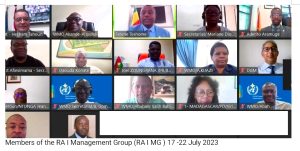
Priorities set for address by the RA I Management Group in Infrastructure include Improving the surface-based, upper-air, hydrological and marine observational networks at the national level to comply with GBON requirements. At the regional level, the Group highlighted issues of Regional Basic Observing Network – RBON, Regional WMO Integrated Global Observing System (WIGOS) Centres (RWCs), Regional Climate Centres (RCCs) and Regional Instrument Calibration Centres (RICs).
The Group stressed the need to improve the capacity of Members on the production, delivery, and access to tailor-made products and services with specific attention to improving services in the aviation and marine sectors for cost recovery purposes.
The Management Group is also committed to ensuring the migration from METEOSAT Second to Third Generation has the priority related to enhancing Members’ capacity on the reception of data and products from the METEOSAT Third Generation.
Transformation of NMHSs into autonomous entities, including cost recovery and diversity in resource generation together with their Digital Transformation and Implementation of LDC and SIDS programme in Africa to support their transition to developing countries, are issues highlighted on the priorities.
(WMO Regional Office for Africa (RAF)

